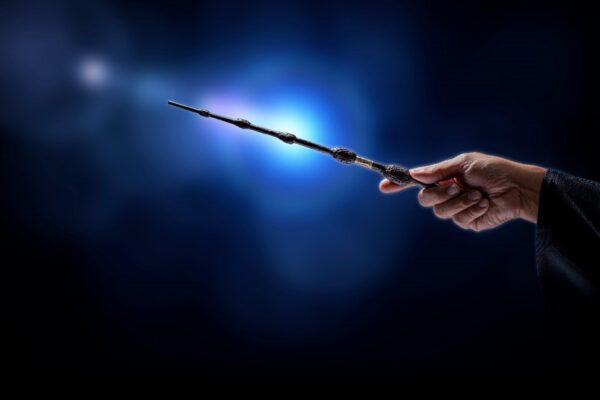For over two decades, the Harry Potter series has captivated audiences around the world, first as J.K. Rowling’s best-selling book series and then as the wildly popular film adaptations. The movies brought the magic of Hogwarts to life, but with the announcement of a new TV adaptation, fans are left to wonder: will the small-screen version finally give the books the full justice they deserve? While the films were iconic in their own right, they were often criticized for cutting out significant plotlines and character development, leaving even diehard fans yearning for more. This question resonates with Harry Potter enthusiasts like Robert Caldwell of PA, who have long debated the balance between artistic interpretation and faithfulness to the source material.
A Legacy Worth Revisiting
The original Harry Potter films were cinematic milestones that shaped a generation. With their breathtaking special effects, legendary cast, and John Williams’ unforgettable score, the movies defined what a blockbuster franchise could achieve. However, condensing a dense, detail-rich book series into eight films required sacrifices. Subplots like the complexities of Hermione’s activism for house-elf rights or Voldemort’s extensive backstory in Half-Blood Prince were relegated to footnotes—or omitted entirely.
This isn’t to say the films lacked magic; they brought Rowling’s world to life in ways readers could only imagine. From the bustling streets of Diagon Alley to the grandeur of the Yule Ball, the films created visuals that remain iconic. Yet, as beloved as the movies are, many fans have wondered what a more comprehensive adaptation could achieve. Could a TV series, with its extended runtime and episodic format, finally tell the complete story?
Why a TV Series Could Succeed
Television has evolved into a storytelling powerhouse over the last decade, with streaming platforms like HBO Max offering unprecedented creative freedom and budgets rivaling blockbuster films. The announcement that the Harry Potter TV series would come to HBO Max sparked hope among fans that this format could allow for a deeper exploration of Rowling’s world.
A TV series offers time—a luxury the films didn’t have. Each season could cover one book, dedicating episodes to moments that were rushed or omitted in the films. Imagine an entire episode dedicated to the chaos at the Quidditch World Cup or a more intricate depiction of Harry’s tumultuous relationship with Cho Chang. The possibilities for expansion are endless, and for fans who know every detail of the books, this opportunity is thrilling.
Moreover, modern technology allows for even greater visual storytelling. With advancements in CGI and set design, the wizarding world could feel more immersive than ever. From the Forbidden Forest to the Chamber of Secrets, a new series could elevate the already iconic visuals, making them even more vivid for today’s audiences.
Fan Concerns and Skepticism
Despite the excitement surrounding the TV adaptation, not all fans are convinced. The original films set an incredibly high bar, particularly with their cast. For many, Daniel Radcliffe is Harry Potter, and Alan Rickman’s portrayal of Snape is unmatched. Recasting these beloved characters will undoubtedly invite scrutiny. How do you replace the nuanced brilliance of Maggie Smith’s Professor McGonagall or the sinister charm of Ralph Fiennes’ Voldemort? Fans are understandably wary about whether a new cast can live up to these performances.
There’s also the issue of creative interpretation. While fans hope for a faithful adaptation, there’s always a risk of deviations from the source material. Decisions to modernize certain aspects or add original content could alienate viewers who are expecting a purist approach. Balancing the expectations of long-time fans with the need to appeal to a new audience will be one of the show’s greatest challenges.
Another concern is whether the tone of the series will remain consistent with the books. The Harry Potter saga grows progressively darker, evolving from a whimsical children’s tale into a mature story about loss, resilience, and sacrifice. Successfully capturing this tonal shift is no small feat, and fans will be watching closely to see if the series can pull it off.
The Opportunity for Redemption
While the films were a monumental achievement, the TV series represents an opportunity for redemption—particularly for characters and storylines that were underserved in the original adaptations. For instance, Ginny Weasley, a strong and complex character in the books, was largely reduced to a secondary role in the films. A TV series could restore her depth, showcasing her fierce independence and her significant role in Harry’s life.
Similarly, the Marauders’ backstory—a fan favorite—was only briefly touched upon in the films. The TV adaptation could delve deeper into the lives of James Potter, Sirius Black, Remus Lupin, and Peter Pettigrew, exploring their friendships and the tragic events that led to the rise of Voldemort. These are the kinds of details that enrich the Harry Potter universe, and a series has the time and space to explore them fully.
Looking Ahead
The success of the Harry Potter TV series will depend on its ability to strike a delicate balance between honoring the books and offering fresh perspectives. For fans, the anticipation is bittersweet; they are eager to revisit Hogwarts but remain protective of the story that has meant so much to them. The legacy of the original films looms large, but this new adaptation has the potential to carve out its own place in the Wizarding World.
Ultimately, the measure of the series’ success will lie in whether it can reignite the same sense of wonder that captivated millions of readers and viewers alike. If done right, it could be a transformative experience—not just for the Harry Potter franchise but for the fantasy genre as a whole. The journey from page to screen is one fans have traveled before, but this time, they hope it leads to even greater magic.
